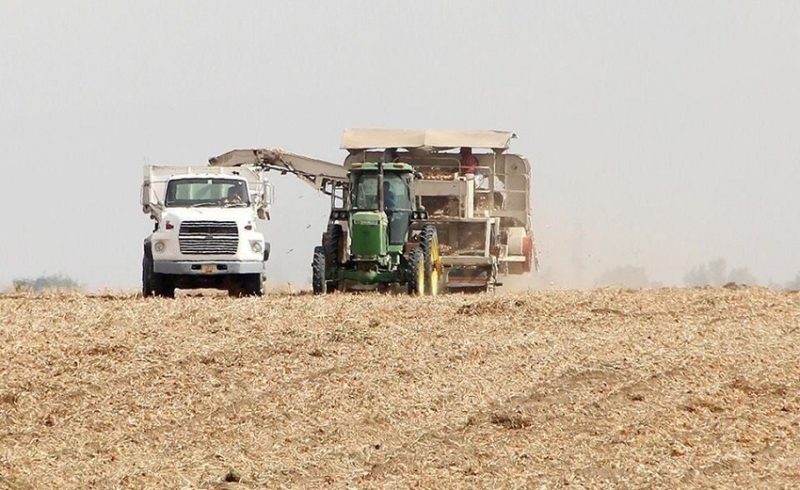Medford, OR – As Oregon’s 83rd Legislative Assembly enters its long session, hundreds of bills have been introduced, including those addressing contentious issues surrounding immigration and agriculture. These proposed laws have sparked debate across the state, drawing attention to Oregon’s sanctuary policies and the state’s agricultural practices.
Immigration Legislation Targets Sanctuary Status
Among the most closely watched immigration-related bills are those that challenge Oregon’s sanctuary status. Oregon has long maintained policies that limit local law enforcement cooperation with federal immigration authorities. However, two bills now making their way through the legislature aim to change that stance.
Senate Bill 11, introduced by Senator Kim Thatcher (R-Keizer) and Representative Ed Diehl (R-Stayton), would require police officers to notify U.S. Immigration and Customs Enforcement (ICE) if they discover that an individual arrested for a crime and found in possession of a firearm is not a U.S. citizen. Under current law, officers are prohibited from inquiring about citizenship status in such situations.
“This bill will enhance public safety by ensuring that individuals who are illegally in the country are not put in positions to commit further crimes,” said Thatcher in a statement.
A second bill, House Bill 3551, sponsored by Representative Christine Drazan (R-Canby), would grant law enforcement agencies authority to enforce federal immigration laws against individuals convicted of violent felonies, Class A misdemeanors, or felony sexual offenses. Drazan argued that Oregon’s sanctuary laws, which prevent the enforcement of federal immigration laws at the local level, are outdated and out of touch with the concerns of many Oregonians.
“Oregon’s Sanctuary State law is extreme and out of touch with the vast majority of Oregonians who want to live in safe neighborhoods,” Drazan said in a release from the Oregon House Republican Caucus.
Agriculture Bills Aim to Address Fertilizer Use and Foreign Ownership
The legislature is also grappling with several bills related to agriculture, particularly focusing on fertilizer use and foreign ownership of farmland.
Senate Bill 747 would require individuals who farm more than 200 acres of irrigated land to report detailed information about their fertilizer usage, including the quantity, type, and crop type. The Oregon Department of Agriculture would then use this data to identify those who may be overusing fertilizers, which can contribute to groundwater contamination through runoff.
The bill has received mixed reactions. Supporters, including environmental advocates, argue that regulating fertilizer use is crucial to protect Oregon’s natural resources, particularly in areas like Boardman, where groundwater contamination from nitrate pollution has made drinking water unsafe.
However, many farmers have expressed concerns that the reporting requirements would place an undue burden on family farms, particularly smaller producers who already face tight margins. These opponents worry that the bill could drive up costs and administrative burdens for farmers across the state.
Senate Bill 641: Chinese Land Ownership Under Scrutiny
Another bill, Senate Bill 641, introduced by Senator Daniel Bonham (R-The Dalles), has garnered significant attention due to its focus on foreign ownership of agricultural land. The bill would prevent Chinese companies or individuals from purchasing or leasing farmland in Oregon. It would also void any existing contracts that violate this proposed prohibition.
The bill stems from growing concerns over the level of foreign investment in U.S. agricultural land. While the most recent data from the U.S. Department of Agriculture shows that foreign entities own around 5% of privately held agricultural land in Oregon, the specific share owned by Chinese interests is not disclosed. However, the bill’s proponents argue that foreign ownership of critical resources like farmland could pose a risk to local economies and national security.
China is one of several foreign countries that hold significant agricultural land in the U.S., with Canada holding the largest share. While some foreign investments have contributed to the state’s agricultural economy, the debate over land ownership remains a divisive issue.
The Road Ahead
As these bills progress through the legislative process, their outcomes could reshape Oregon’s approach to both immigration and agriculture. With strong opinions on both sides of the issues, it remains to be seen whether lawmakers will find common ground or whether these bills will spark further debate.
For now, Oregon’s 83rd Legislative Assembly continues to navigate complex and controversial topics that will likely define the state’s future for years to come.

